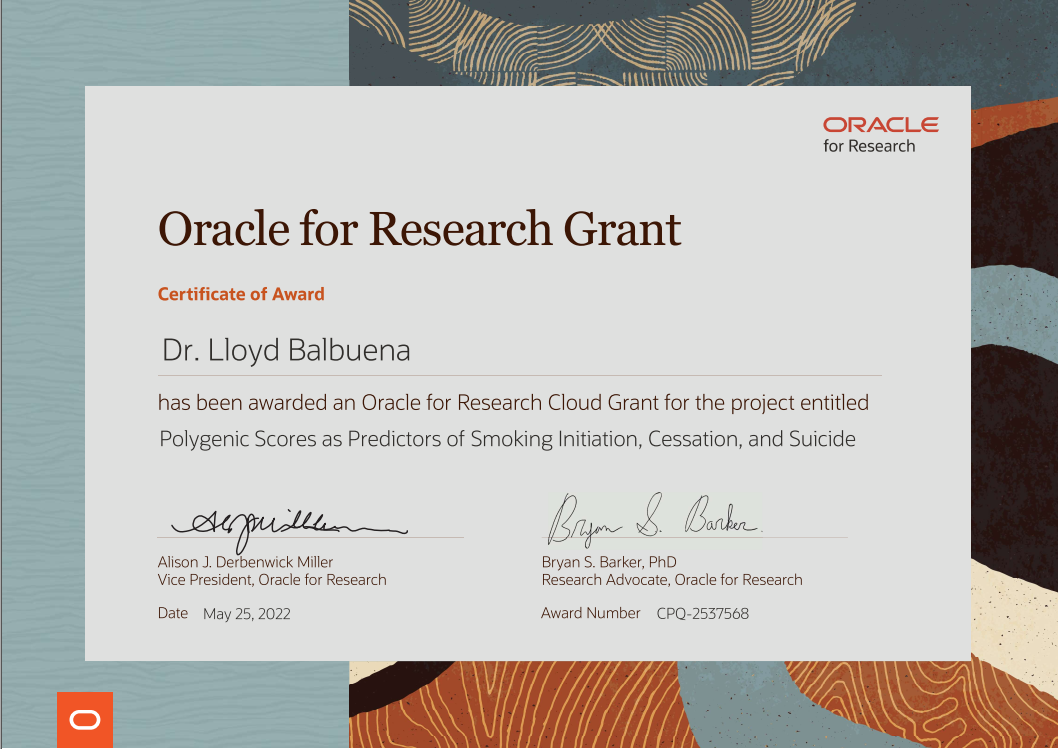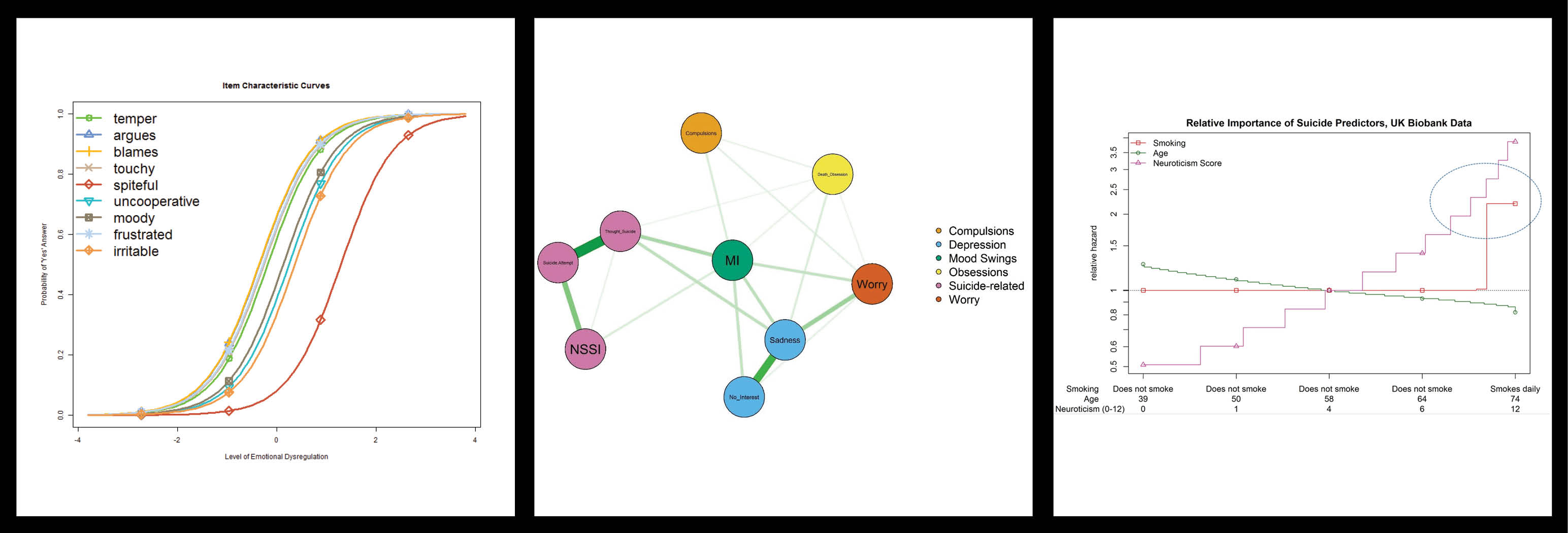Our Group
We are interested in using computational methods to gain knowledge of mental phenomena. It is said that Plato’s Academy had the sign at the entrance, “Let nobody enter who is ignorant of geometry.” Mathematics has proven to be an uncannily suitable language for phenomena ranging from heavenly bodies (by Newton) to neurons (by Hodgkin-Huxley). Math makes an important contribution to questions such as whether mental disorders are discrete or continuous, what symptoms constitute various disorders, and how mental conditions can be “measured” with the use of tests. The chain of reasoning required by the scientific method and the inference about the cause behind the observations, would be impossible without math. Our group is called computational psychiatry because (thankfully) computers and software can perform the calculations that we would otherwise carry out by hand.
Current Projects
- AI for the prediction of future self-harm and suicide episodes
- The genetic correlation and heritability of smoking and neuroticism and implications for suicide
- Smartphone monitoring of suicidal ideation and mood instability
- Patient perspectives regarding the use of their health records, experiences with various mental disorders and medications
- Risks and benefits of clozapine compared to other antipsychotics
- Lifestyle, personality, and societal variables associated with suicide
- Comorbidity of mental disorders with physical diseases
- ADHD and emotional dysregulation
- Determining whether certain subtypes of depression respond better to particular medications
Dr. Lloyd Balbuena, PI

Lloyd Balbuena received a PhD in Cognitive Science from Carleton University and was appointed assistant professor in 2015. He is now an associate professor at USask.
Visit Dr. Balbuena's Google Scholar page.


Contact
|
Dr. Lloyd Balbuena |
Shawn Halayka |


